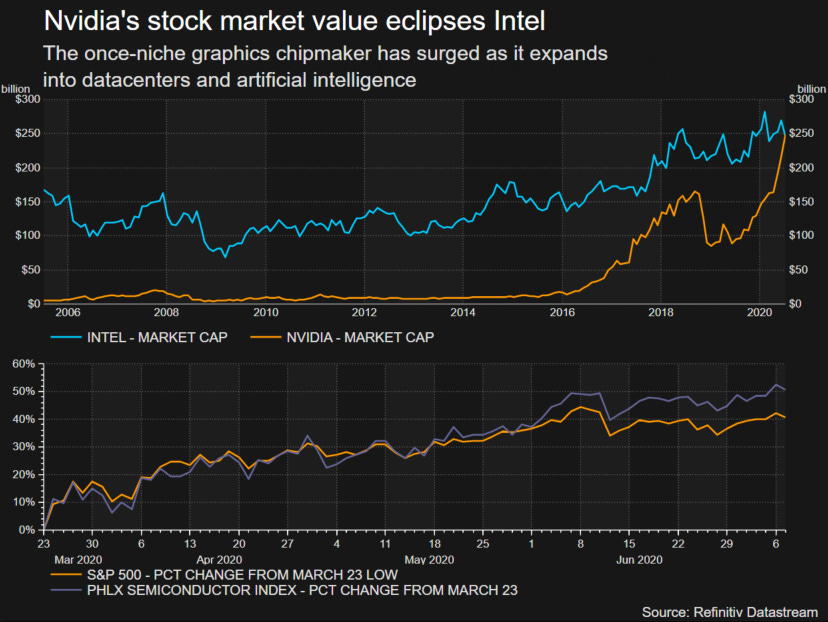Here’s your weekly wrap of technology, innovation, and finance news.
⚙️ Mobility
Boom Supersonic announced they would be unveiling their XB-1 demonstrator supersonic jet on October 7th. The company hopes the XB-1 will pave the way for the company’s 55-passenger Overture jet that can potentially fly from New York to London in three hours and 15 minutes, half the time it currently takes.
? Biology
A relatively new startup called Tessera Therapeutics is developing a new class of gene editors capable of writing long stretches of DNA, something Crispr can’t do.
So far, company scientists have identified about 6,000 retrotransposons (what Tessera calls RNA writers) and 2,000 transposons (DNA writers) that show potential. Tessera’s team of 35 scientists have been conducting experiments in human cells to understand how exactly each one works. Sometimes, a promising, naturally-occurring gene writer will get tweaked further in Tessera’s lab, to be more precise or go to a different location. The company hasn’t yet demonstrated that any of its gene writers can eliminate an inherited disease. But in mouse models, the team has consistently been able to use them to insert lots of copies of a large green fluorescent protein gene into the animals’ genomes as a way of proving that they can reliably place designer DNA.
? Finance
NVIDIA became the most valuable US chipmaker on Wednesday, surpassing Intel for the first time. The 2037% rise in NVIDIA’s share price over the past five years has been driven by their chips becoming a primary way to train machine learning models.
The WSJ profiled Afterpay, the most valuable tech company listed in Australia. The stock is up more than ninefold from its March low as the company rapidly adds new users in the US and bad debt issues (a key part of the bear case) have not yet materialised.
Analysts had expected buy-now-pay-later providers to struggle in an economic slowdown, hit by rising bad debts and consumers tightening purse-strings in response to lost jobs and lower income. So far, the opposite appears to have happened.
By June 30, Afterpay had 5.6 million active U.S. users, more than half of its global customer base, as lockdowns, layoffs and store closures pushed shoppers to buy online.
?️ Ecommerce
Live-streaming has become a lifeline for some Chinese retailers looking to sell online, and international brands like Louis Vuitton and Gap are joining the trend.
Some big companies, such as local cosmetics brand Forest Cabin, have trained sales staff to run regular live streams, answering customers’ virtual queries much as they would deal with in-store visitors.
Until last year, 80% of the company’s sales happened in-store. That has now flipped, and 80% of sales are online, said Chief Executive Sun Laichun. “The Covid-19 epidemic changed how we operate,” he said. Even as the epidemic raged, first-quarter sales, propelled by live streaming, actually increased 20% from a year earlier, he added.
Louis Vuitton tapped movie star Zhong Chuxi to host its first live stream on social-commerce platform Xiaohongshu in March, while Gap’s live-stream debut on Taobao in April was fronted by Viya, one of China’s best-known social-media influencers.
? Gaming
Sony made a strategic investment of $250 million in Epic Games, maker of Unreal Engine and Fortnite, which gives Sony a 1.4% stake in the company and values Epic Games at $17.86 billion. The two companies will explore opportunities for further collaboration across gaming, music, and film. Back in April, Fortnite held a popular in-game event with Sony Music artist Travis Scott that had 12.3 million concurrent players participating (video).
“Sony and Epic have both built businesses at the intersection of creativity and technology, and we share a vision of real-time 3D social experiences leading to a convergence of gaming, film, and music. Together we strive to build an even more open and accessible digital ecosystem for all consumers and content creators alike,” said Tim Sweeney, Founder and CEO of Epic.
? Robotics
Coronavirus outbreaks are spurring Tyson Foods to invest more in robotic butchers. Meat remains a challenging area for robotics due to the soft material and variability involved.
Tyson’s technicians are trying to teach machines to recognize and quickly adjust to differences in meat coloration and shape, part of what executives say makes meat processing harder for machines than, say, assembling cars from uniform, manufactured components.
In meat plants, “our parts are infinitely variable,” said Marty Linn, previously the principal engineer of robotics for General Motors, who joined Tyson last year to help direct its automation efforts.
?️ Space
A NASA mission to explore Psyche, a weird metal asteroid, is on track for its August 2022 launch after the mission passed its critical design review last week.
Most of the objects in the main asteroid belt between Mars and Jupiter are rocky. But, strangely, 16 Psyche appears to be made primarily of metallic iron and nickel, a composition similar to that of Earth’s core. For that reason, scientists suspect that 16 Psyche may be the exposed core of an ancient planet, whose rocky outer layers were stripped away by impacts long ago.
⚡ Other Snippets
Twitter engineers wrote an interesting blog post explaining how they refactored their ad platform architecture last year after it had seen ten years of iterative development.
As we continue to grow our ad business, adding a new product will be as easy as plugging and playing these horizontal platform services as needed.
Twitter is also working on a subscription platform codenamed Gryphon, according to two online job postings.
Personal plug: The fund I run now has a 3-year track record. Check it out. ?





